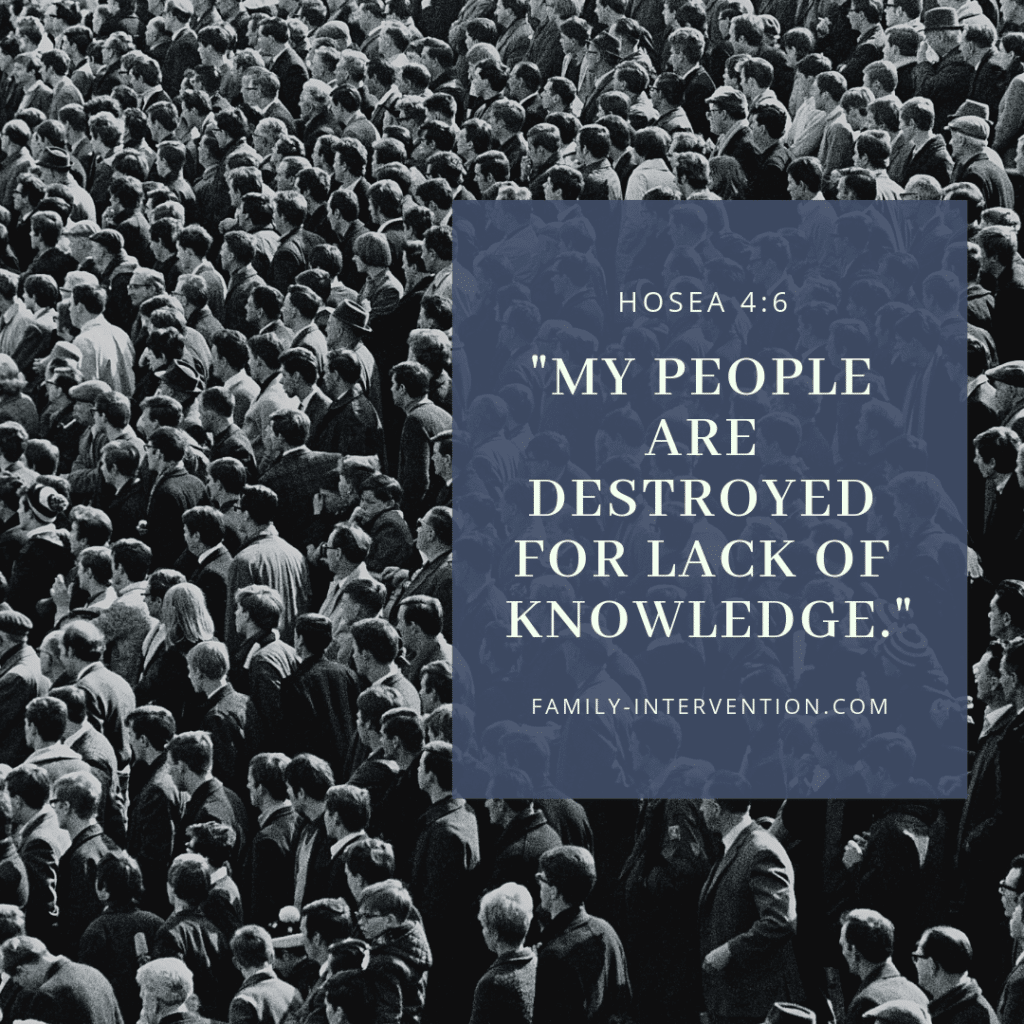Search by category, archive or keyword

God, grant me the serenity to accept the things I cannot change,
Courage to change the things I can,
And wisdom to know the difference.
The Serenity Prayer is a simple yet powerful reminder of the importance of understanding what is in our control and what isn’t.
How We Approach a Christian Drug and Alcohol Intervention
In the case of addiction, families often waver between feeling helpless to fix their loved one’s addiction and deciding that they simply have to wait and trust in God to do what they can’t.
What’s really happening is that families have become confused about what is their responsibility, what is the addict or alcoholic’s responsibility, and what is in God’s hands.
Our Christian intervention specialist can help families get clear about what they have control over and how to lovingly, yet firmly, place responsibility for curing addiction where it belongs.
The Moral Conundrum of Addiction
Who has the moral obligation to fix the addiction problem?
Substance users have become experts at making their addiction someone else’s problem or denying that they have a problem. Families can help by refusing to let the addict or alcoholic continue avoiding responsibility for his or her addiction.
Overcoming Addiction & Enabling With God’s Help
Remember, it is out of a well-intentioned heart that families enable the addictions of their loved ones – you don’t desire someone you love or care about to suffer.
The reality is consequences, and suffering itself is an intervention – by God.

Galatians 6:7 states, “Don’t be misled–you cannot mock the justice of God. You will always harvest what you plant.”
Loving discipline involves letting your loved one feel the consequences of their actions. For the addict or alcoholic to see the results of their behavior absent of your help and support. By letting go, you are allowing them the opportunity to be held accountable. Enabling disables God’s work.
Enabling tells an addict that it’s okay to harm themselves and those around them and allows the addiction on its best day to remain the same and on its worst day to strengthen in destruction. Addiction is progressive, chronic, and fatal. Enabling expedites this and puts the family in the driver’s seat after kicking God out. The acronym for EGO is Edging God Out.
Addicts, Alcoholics, and their families do not change their behavior when things are going well. They only consider something different when things are going unwell. Letting your loved one experience the consequences of their addiction is allowing them to hear God without distraction:
“No discipline is enjoyable while it is happening–it’s painful! But afterward, there will be a peaceful harvest of right living for those who are trained this way.” – Hebrews 12:11
Is Addiction a Moral Failing or a Disease?
For a long time, society largely believed that addiction resulted from weak morals and that faith and willpower were the cure for addiction. We now know that addiction is a disease caused by physical and psychological changes in the body.
In fact, the very definition of addiction is that willpower alone is no longer enough to stop substance abuse. That’s why receiving professional drug or alcohol intervention and treatment is a critical part of lasting recovery.
Families, on the other hand, DO have a moral choice:
Will you allow the situation to continue until your loved one dies or goes to jail, or will you take the courageous action necessary to put accountability for addiction back where it belongs: on the drug user or alcoholic?
Why Isn’t My Faith that My Loved One Will Get Better Actually Working?
Enabling happens when families are trying to help, but in doing so, they are not allowing their loved one to feel the consequences of his or her actions. Committing to getting help to overcome addiction is the responsibility of the substance user. But usually, when families “help” their loved one, they are making the addict or alcoholic comfortable in their addiction.

Comfortable people have absolutely no motivation to change their behavior. They’d rather be comfortable than face the discomfort and discipline of change that is necessary to overcome addiction.
By shielding the addict or alcoholic from the consequences of their actions (by giving them food, shelter, money, bailing them out of jail, etc.), you are playing God and not letting God do His job of motivating the substance user through the natural consequences of his or her actions.
“Don’t be misled—you cannot mock the justice of God. You will always harvest what you plant.”
– Galatians 6:7
When families stop enabling, this allows the substance user to experience the full consequences of addiction, which in turn is letting God do His job.
How Substance Users turn their Family’s Faith Against Them
When you love a person who is addicted to substances, you hope they will get better. You turn that hope into faith. But substance users know all too well how to use this hope-based faith against you so they can stay comfortable in their addiction. Watch this video and see if you recognize any of these scenarios.
Related: How to Respond When a Family Member is Struggling with Addiction
A Faith-Based Approach to Family Empowerment and Intervention
True faith is more than hope. It’s trust. When you trust yourself to do your part, trust your loved one to take responsibility for their own life, and trust God to take care of the rest, that is genuine faith.
Accept the Things You Cannot Change
Family members often unwittingly take responsibility for things that are not their responsibility. Here’s who’s really responsible for what…
The family is NOT responsible for the following:
- Shielding the substance user from the natural consequences of his or her actions
- The emotions or hardships of the substance user
- Feeding and sheltering adult children, especially when they lie, steal and disrupt family life
The family IS responsible for the following:
- No longer enabling their loved one to be comfortable in addiction
- Arranging professional intervention and addiction services for their loved one
- Setting clear boundaries
- Attending to their own needs and healing
The addict or alcoholic is responsible for the following:
- Admitting he or she has a problem
- Accepting help when it is offered
- Doing the hard work to overcome addiction
- Committing to long-term recovery
Have the Courage to Change What You Can
Substance users avoid addiction treatment because it’s a difficult process to go through in order to achieve the reward of a sober life. Families likewise avoid intervention because they don’t want to go through the difficult process of saying “no” to their loved one and weathering the emotional firestorm that it will bring.
To get through this process, families need two things:
- Courage: Yes, this will be uncomfortable. Yes, your loved one will probably say that they hate you for refusing to continue accommodating them. Yes, you can weather the storm and enjoy a better life if you have the courage to do so.
- Professional intervention assistance: If your loved one had cancer, you wouldn’t try to treat it all by yourself. Interventions also require expert help to have the best chance of success.

Christian Drug and Alcohol Intervention Help
At Family First Intervention, we can connect you with specialists who know how to take a Christian approach to intervention and treatment.
A Christian intervention is not designed to change the substance user’s faith. Rather, it is about bringing the family together and delivering your loved one to a place where he or she can slowly reestablish a life and faith on his or her own terms.
We Will Travel to Any Corner of the United States to Help Light the Way Toward Sobriety and Healing
Published On November 25, 2020
Updated On February 16, 2022
An intervention is not about how to control the substance user; it is about how to let go of believing you can.
“Many interventionists try to play therapist and clinician while adding on family recovery and coaching services. None of these interventionists is qualified or licensed to do that. Interventionists must stay in their lane after the person accepts help. The best outcomes come from your loved one’s treatment team and the treatment center’s family program. If you choose an interventionist who offers support services after a successful intervention, it will create friction and discrepancies in your loved one’s treatment; we have gone down that road, and it does not work.”
Mike Loverde, MHS, CIP



